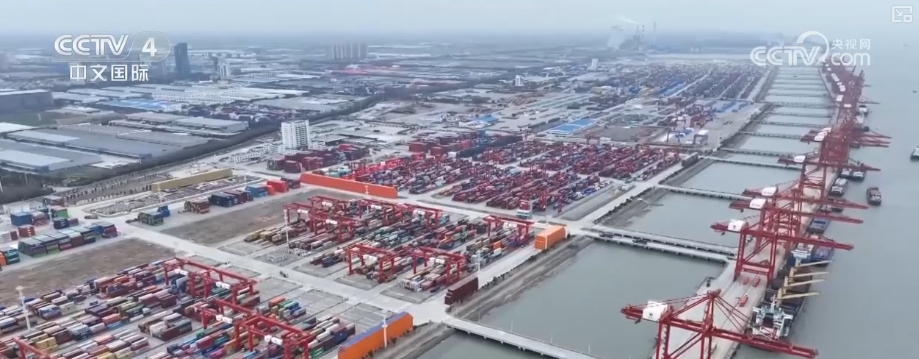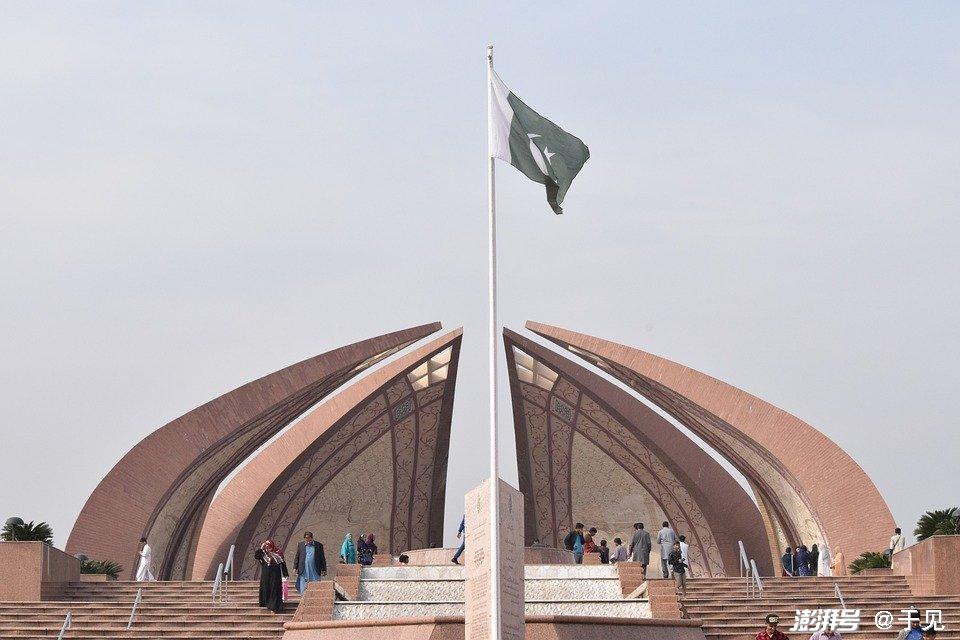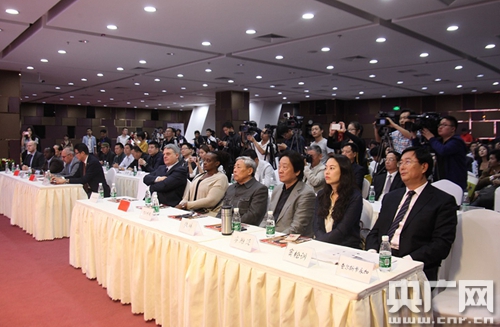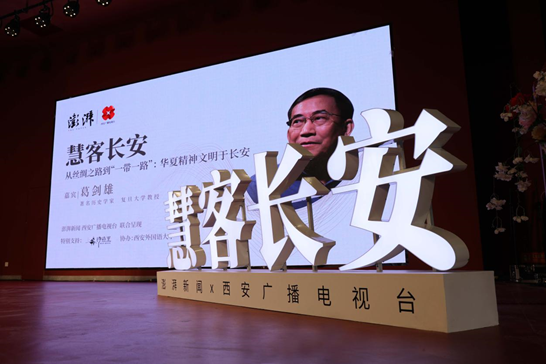Lai Ching-te's Entry Into The Countdown, Mainland China Draws A Red Line, Trump Faces Two-choice
Lai Ching-te's Entry Into The Countdown, Mainland China Draws A Red Line, Trump Faces Two-choice
Having said that, not long after Taiwan’s leader Lai Ching-te took office, it was reported that he would visit several Latin American countries in August 2025 and pass by the United States. As soon as this happened, it caused a lot of controversy, because it was not just a simple trip

Having said that, not long after Taiwan’s leader Lai Ching-te took office, it was reported that he would visit several Latin American countries in August 2025 and pass by the United States. As soon as this happened, it caused a lot of controversy, because it was not only a simple trip, but also involved cross-strait relations and the Sino-US game.
Specifically for this visit, Lai Ching-te plans to go to Paraguay, Guatemala and Belize, which are the few remaining "diplomatic countries" in Taiwan. Paraguayan President Peña publicly stated at an investment forum on July 15 that Lai Ching-te would visit in August and the country was making preparations. Taiwanese media reported that Lai Ching-te is expected to depart from Taipei on August 4, first pass through New York, then go to Latin America, and pass through Dallas on August 14 on his return journey.
This is not his first trip. At the end of last year, he visited the Pacific island country and transited through Hawaii and Guam, but those places were outside the U.S. territory. This time he went straight to the local big cities, which had a stronger political significance. New York is a financial center, and there are Taiwanese companies participating in the "2025 American Taiwan Image Exhibition" in Dallas. Lai Ching-te may take the opportunity to discuss economic and trade and promote Taiwan's chip and drone industry.
The mainland responded quickly. Foreign Ministry spokesman Lin Jian made a statement at a press conference on July 15 that China firmly opposes any form of official exchanges between the United States and Taiwan, opposes the Taiwanese leader's visit to the United States in any name, and opposes the US supporting the "Taiwan independence" forces. He used three "resolute opposition" and three "anything" to mark the red line clearly.
Chen Binhua, spokesman of the Taiwan Affairs Office of the State Council, also reiterated at a press conference on July 16 that he opposed Lai Ching-te's transit to the United States in any form, warned the United States not to send false signals, and said that "relying on the United States to seek independence" is doomed to fail. Chen Binhua also mentioned that the one-China principle is the general trend, and he hopes that Latin American countries will handle Taiwan-related issues carefully and join the China-Latin America cooperative family as soon as possible. This is not only for the United States, but also criticizes those "diplomatic diplomatic countries", because in recent years, Taiwan has fewer and fewer "diplomatic diplomatic countries" and the mainland's influence is becoming increasingly greater in Latin America.

The choice Trump is facing now is quite tricky. After he took office, Sino-US relations have been sensitive, especially in the economic and trade fields. Trump has always emphasized that "America is preferred" and has complained about Taiwan's chip industry, saying that Taiwan has snatched US business and asked Taiwan to pay more money to buy American weapons.
In early 2025, he complained that Taiwan should increase defense spending to 10% of GDP, otherwise the United States would not help defend. Lai Ching-te responded that he would raise the defense budget to 3%, and the 2025 budget has been arranged by 2.97%, including other expenses, and plans to buy more US weapons, including rocket systems and drones. But Trump's calculation is trade balance. He added 10% tariffs on China and also restricted Chinese student visas and technology transfers, which made the atmosphere of Sino-US negotiations more complicated.
Lai Ching-te was allowed to transit, U.S. State Department spokesman Bruce said on July 18 that this is in line with past practice and is based on arrangements of safety, convenience and dignity, and has no political implications. But the mainland has warned that if condoned, it will undermine the economic and trade progress that has just improved. For example, the export control of Nvidia H20 chip has just been lifted, and China's rare earth exports have been liberalized to a limit, and the two sides are still discussing tariff issues.
If something happens at this critical moment, all the negotiations may be wasted. Trump does not want to see this. He knows that Taiwan is a bargaining chip, but it is too early to give up now because the United States still needs to use Taiwan to restrain the mainland's influence in the Asia-Pacific. Refusing to transit will make US-Taiwan relations even more swaying. The tariff dispute has already made Taiwan unhappy. If it is blocked, the US's control over Taiwan will be discounted.
Lai Ching-te chose this opportunity to visit, and it was not a casual decision. Taiwan is in chaos. Typhoon "Gemei" has just passed, disaster relief work has been criticized, and Han Guang's military exercise has another car accident and injured. The removal case voted on July 26 and the results were released in August, which may change the structure of the legislative body. His visit may want to divert attention and consolidate his "diplomatic diplomatic relations", and at the same time he uses the United States to negotiate tariff exemptions through transit.
There are more than 150 companies in Taiwan who want to participate in the exhibition in Dallas, including Hon Hai and drone manufacturers. Lai Ching-te may want to promote investment and bring the US-Taiwan economy and trade closer. But the red line of the mainland is there. The People's Liberation Army has cruised normally around Taiwan, and the gray area is operating every day. In late July, military exercises may be increased to simulate blockade or missile strikes.
Trump's team has hawks against China like Secretary of State Marco Rubio. When he met Wang Yi in Malaysia in July, he said that he understood China's position on Taiwan, but did not mention the transit. Trump himself has never made a clear statement on whether to defend Taiwan. He said, "I never say it because I need to negotiate."
This reflects the United States' "strategic ambiguity" policy, and since the Taiwan Relations Act of 1979, it has not given Taiwan a clear security guarantee. But now the situation has changed, the mainland's military strength has increased, and the United States has to weigh the costs. Intelligence shows that the mainland has the ability to take over Taiwan by 2027, but may not necessarily take action. If Lai Ching-te successfully transits, it may stimulate the mainland's escalation action; if it is rejected, Lai Ching-te will not be able to bear the face and supporters on the island will be disappointed.

From a larger perspective, this incident reflects the struggle between China and the United States in the Indo-Pacific. Trump wants to revive the US manufacturing industry and attract TSMC to build factories in the United States, but Taiwan's chip industry is the lifeblood and will not be fully moved. After Lai Ching-te took office, he promoted the "New Southbound Policy" and signed an investment agreement with Thailand to diversify risks. But the mainland's economy has great influence. Latin American countries mostly recognize one China, and Paraguay is a few exceptions. If the mainland puts pressure, they may be shaken.
Trump has to choose: on the one hand, it is to stabilize Sino-US trade and avoid breaking of rare earths and chip supply chains; on the other hand, it is to support Taiwan and maintain the confidence of Asia-Pacific allies. If you choose the former and refuse to transit, Lai Ching-te would have to divert the route and fly directly to Latin America; if you choose the latter, you would allow transit, and the mainland may counter the situation and increase tariffs or military exercises against the United States.
Lai Ching-te's political experience made him accustomed to tough stances. When he was the mayor of Tainan, he promoted water control and environmental protection, removed bronze statues of schools, which caused controversy; when he was the mayor of Tainan, he revised labor laws and dealt with the defeat of the election. But on cross-strait issues, he insisted on "Taiwan sovereignty" and regarded the mainland as "foreign hostile forces", which made dialogue even more difficult. The mainland has always advocated peaceful reunification, but opposed separatism, and the red line is "Taiwan independence". Trump, his trading mindset, may use transit to buy more Boeing aircraft in Taiwan or increase investment in the United States. Reuters reported that the US may arrange Lai Ching-te's business activities to discuss procurement negotiations.
But based on the current situation, Trump prefers to give priority to stability between China and the United States. After taking office, he emphasized that he shared burdens and needed money and strength to his allies. Although Taiwan is important, it is not the core. Intelligence shows that the mainland has no immediate combat plan, but gray operations will continue. If the transit is completed, it may trigger a simulated blockade in the mainland; if it is cancelled, Lai Qingde's itinerary will be adjusted and he will visit Latin America directly without a US mainland. In the end, Trump chose to refuse, and Lai Ching-te continued his term until 2028, but tensions across the Taiwan Strait did not ease.
This matter has deep connotations. Think about it, Taiwan is sandwiched between China and the United States, and the big game between the island. Lai Ching-te wants to borrow a visit to boost his momentum, but the mainland red line is there, and Trump has to settle the economic accounts.
Globally, the Indo-Pacific situation is changing greatly. The United States wants to pull allies to surround the mainland, but allies such as Japan and South Korea are also afraid of trade wars. Taiwan has to be self-reliant, increase its defense budget, buy the right weapons, such as drones and asymmetric combat capabilities. Trump's vague policies make it difficult for all parties to guess, but they also give room for negotiation. If Lai Ching-te is too radical, it may backfire, and the people on the island are most afraid of war.
After all, in this countdown stage, all parties are testing the bottom line. Lai Ching-te's visit is a normal diplomatic rule, but it becomes a disgusting when transiting to the United States. The mainland’s opposition is a principled position, and Trump’s choice is related to the overall situation. If he chooses China and the United States to stabilize and refuses to transit, it will be in line with the current momentum of Sino-US negotiations; if he is indulged, it will cause chaos. Taiwan has fewer and fewer "diplomatic diplomatic countries", the three Latin American countries are under great pressure, and the mainland's "Belt and Road" is still in the process of deepening its efforts. Lai Ching-te has to consider it, and Trump has to think clearly. Choosing one of the two is not a joke.
From a historical perspective, there are always waves like transits. When Tsai Ing-wen's era transited to the United States, the mainland army responded; now Lai Ching-te is tougher and has higher risks. Trump's team has hawks, but the president himself is pragmatic and prioritizes the economy. China-US tariff negotiations are hot in 2025. Rare earths and chips are the key, so don’t let the Taiwan issue disrupt the situation. Lai Ching-te's political career, from a doctor to a president, relied on the support of the DPP, but cross-strait peace is a consensus on the island, and polls show that most people are unwilling to take risks.
The red line in the mainland is not empty talk. The statements of the Ministry of Foreign Affairs and the Taiwan Affairs Office of the State Council represent firm will. The choice Trump faces is actually a microcosm of Sino-US relations: cooperation or confrontation. Allowing transit may cause Taiwan to misjudgment and increase its "independence" policy; refusal can stabilize the overall situation, but US-Taiwan relations are in a state of disarray. In the end, Trump gave priority to economic and trade, rejected transit, and Lai Qingde changed his itinerary and continued to rule, but cross-strait dialogue was difficult to start.





